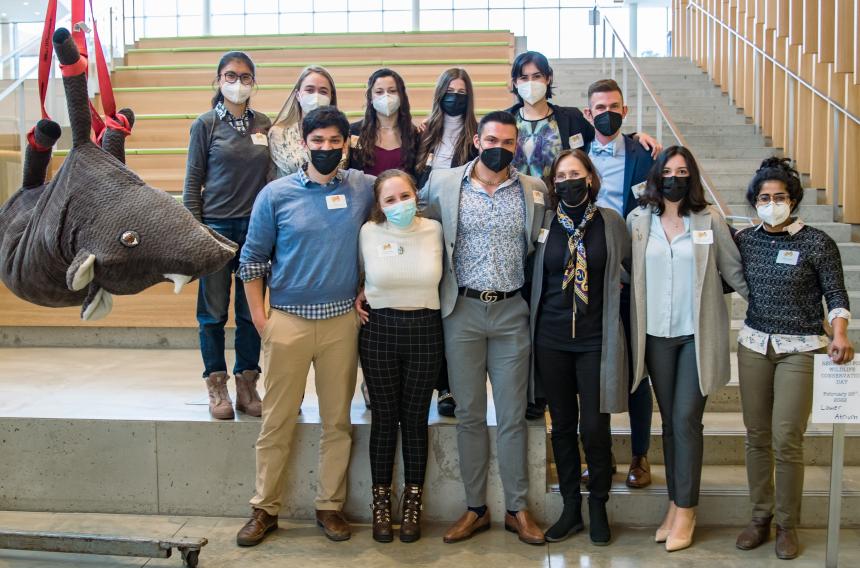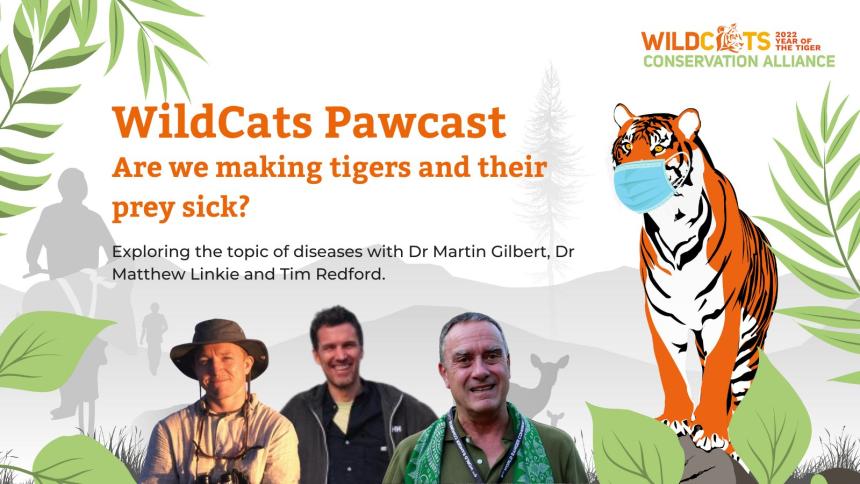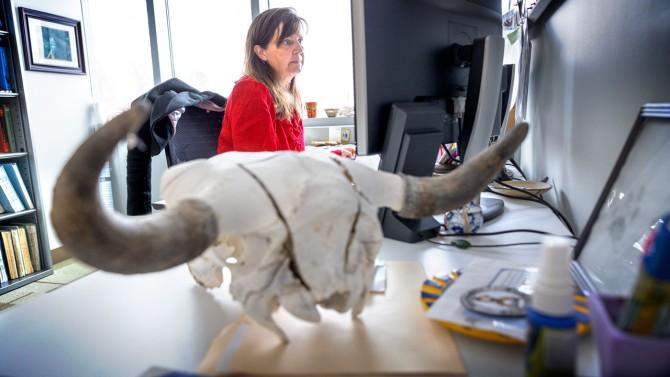News

Announcement
March 29, 2022
Our scientists work around the world to improve public health outcomes, strengthen local and international food systems, and catalyze wildlife conservation efforts— all while training the next generation of One Health professionals. Find out how you can support making our world safer and healthier for all.

March 21, 2022
Cornell’s Zoo and Wildlife Society hosted its first Wildlife Conservation Day Feb. 26, a one-day symposium devoted to education and training for students with an interest in non-domestic species.

Blog
March 14, 2022
Cornell veterinary student Loren Lassiter, DVM '22, practices unique care in her wildlife preceptorship at the Fossil Rim Wildlife Center.

March 03, 2022
The Cornell Wildlife Health Center's Dr. Martin Gilbert collaborated with an international team of scientists to uncover the cause of a mysterious illness in an endangered wild tiger in Bhutan.

Podcast
February 25, 2022
Listen to our Wild Carnivore Health Specialist Dr. Martin Gilbert and other big cat conservationists discuss the impacts of infectious diseases on tiger populations in the first episode of WildCats Pawcast, a brand-new podcast from WildCats Conservation Alliance.

February 23, 2022
The bald eagle’s comeback is one of America’s most famous conservation success stories. But despite the boom in their numbers, bald eagles still face many threats, including poisoning from ingesting lead bullets.

February 21, 2022
Cornell veterinary student Michelle Greenfield, DVM '23, has leveraged her lifelong passion for aquatic animals to produce Aquadocs – the only aquatic veterinary podcast as well as a top 50 life sciences podcast on iTunes. Each show dives into a different facet of marine and aquatic veterinary health.

February 17, 2022
The New York State Wildlife Health Program is a key partnership between Cornell and the New York State Department of Environmental Conservation. The program coordinates responses when disease strikes New York’s wild animals and it helps prevent outbreaks, in domestic animals and people too, by translating data into policy.

Blog
February 14, 2022
Cornell veterinary student Carolina Baquerizo, DVM '24, describes her experience completing a summer externship in wildlife medicine at the South-East Zoo Alliance for Reproduction and Conservation (SEZARC).
Podcast
February 07, 2022
In this podcast, Dr. Krysten Schuler, a wildlife disease ecologist and co-director of the Cornell Wildlife Health Lab, and Jen Grauer, a Cornell PhD student, discuss their latest project to track and study wild moose, led by the New York State Department of Environmental Conservation.
